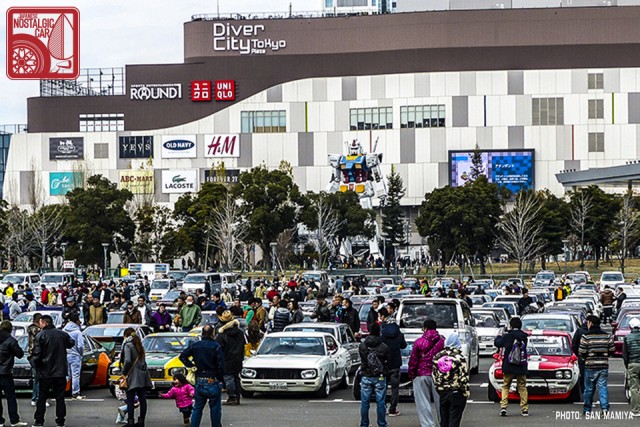
A life-size Gundam robot towers above the trees. Giant windowless shopping centers operate like small cities. In this snapshot of a hyper-futuristic metropolis floating on a man-made island in Tokyo Bay, tradition comes in the form of a parking lot teeming with zokusha. This is Japan.
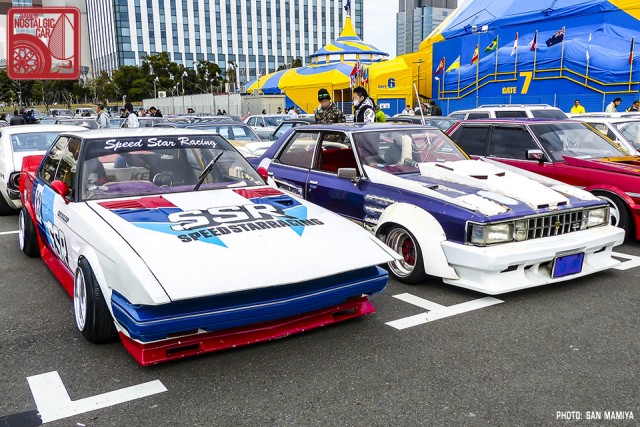
We begin with a row of Toyota kaido racers, a juxtaposition of one brilliant example of the breed and one a work in progress. If examined closely, one can spot the snapshot-in-time haisoka GX71 Cresta featured in Part 02. The Crown in between is clearly on-track to become the latter, and gives a clue as to how these body jewelry is applied.
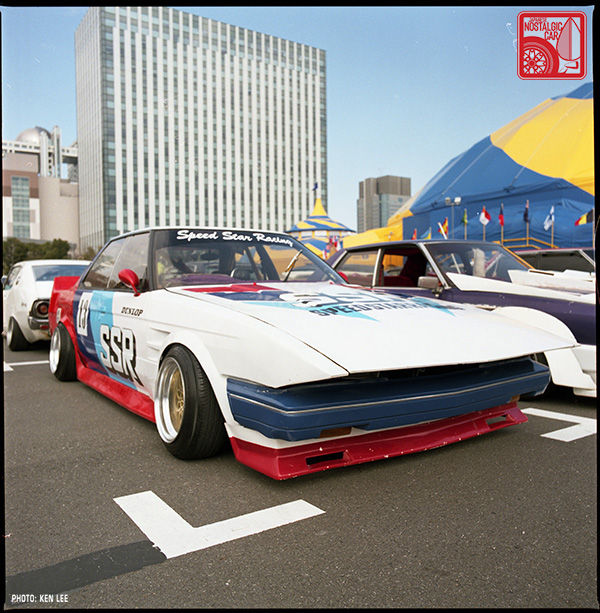
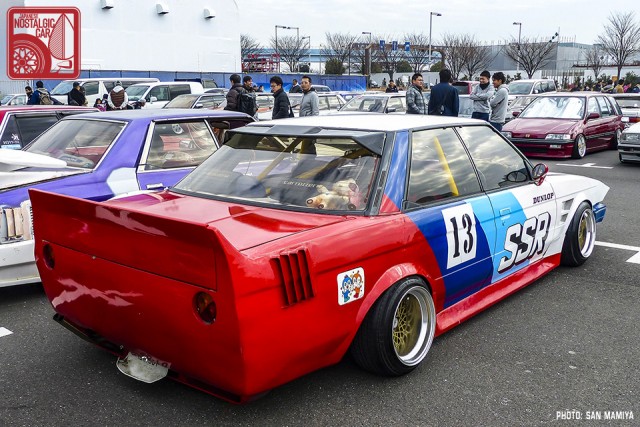
Very much reminiscent of the Gundam robot itself, the GX71 stood as an prime example of Fukuoka style. Hailing from western Japan, it emphasizes multiple, bright colors, oblique angles in the livery, and large brand logos, all this in addition to other kaido racer hallmarks such as the sharknose, shakotan ride height, tsuraichi (flush) wheel and tire fitment, side vents, integrated spoiler and — for the brave — a smoothed out rear end with round taillights.
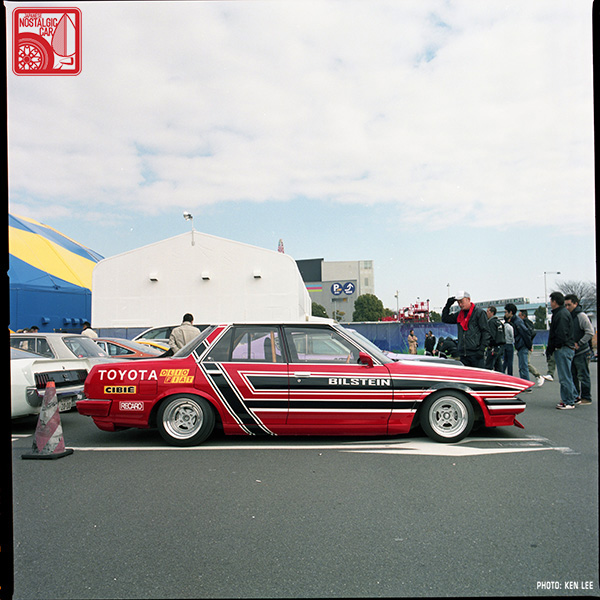
At the front of the row, another Fukuoka-style GX71 held court with its glorious angularity. The slants and intersections of the livery work ideally with the boxy lines that were prevalent on 80s sedans. Of course, a set of geometric-pattern wheels like SSR MkIIs is de rigueur.
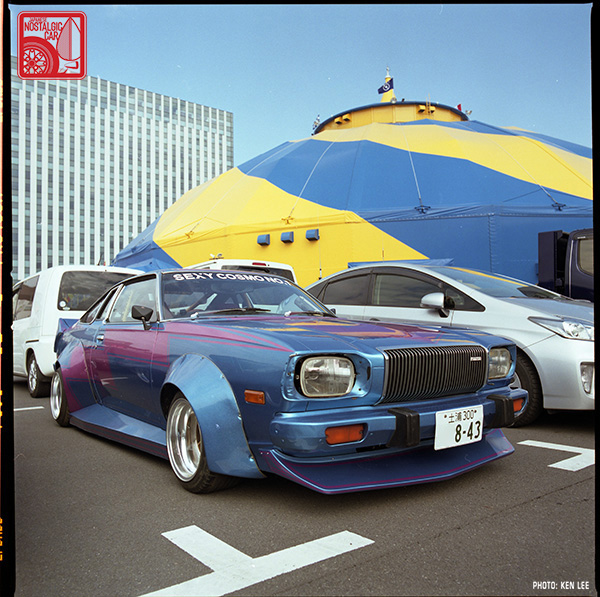
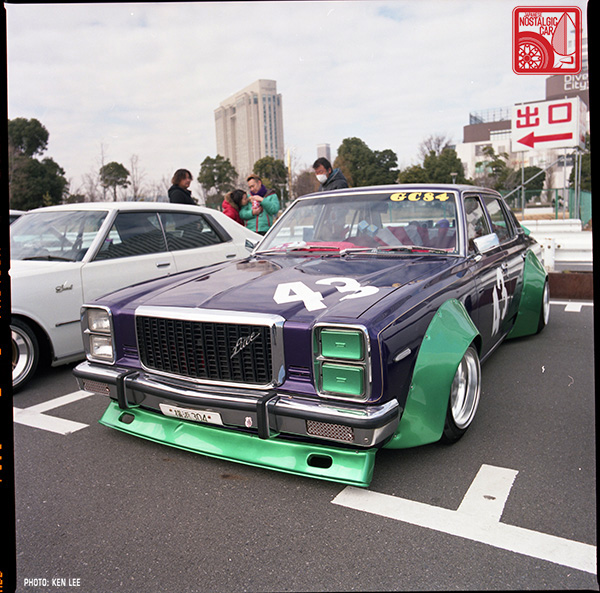
While these gurachan zokusha may be more traditionally styled in terms of color scheme and accessories, there’s nothing common about their car choice. Rather than a Nissan or Toyota, these customizers went with big Mazdas, in the form of an RX-5 Cosmo and a Luce Legato sedan. The covered stacked headlights of the latter are a particularly brilliant touch.
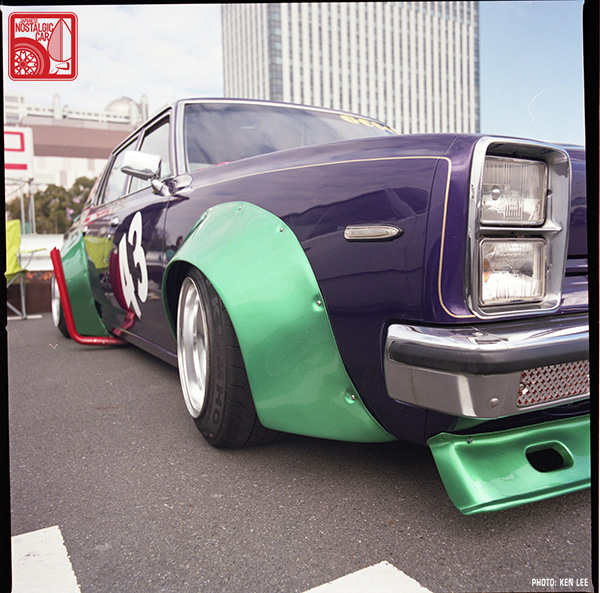
Note the brilliant contour-tracing pinstriping, what appears to be a Datsun side marker lights, and the side-exit takeyari. Bright metallic green with purple is a combo that has no right to work, but it does.
Bridging the gap between kaido racer and actual racer were an absolutely stunning kenmeri Skyline — done in the livery of the 1972 Tokyo Motor Show race car concept, but in Japan’s traditional racing colors — and Celica Liftback whose colored racing jacket evoked perhaps a Shakotan Boogie character wearing shades.
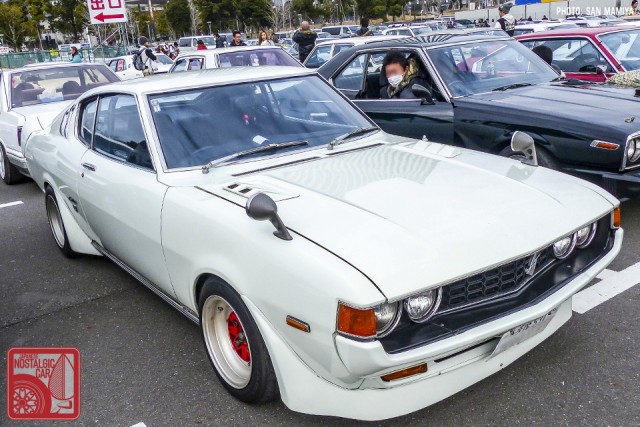
Further afield, another ideal representation of the RA25 Liftback Celica paid homage to Toyota’s turbo Fuji racers of legend.
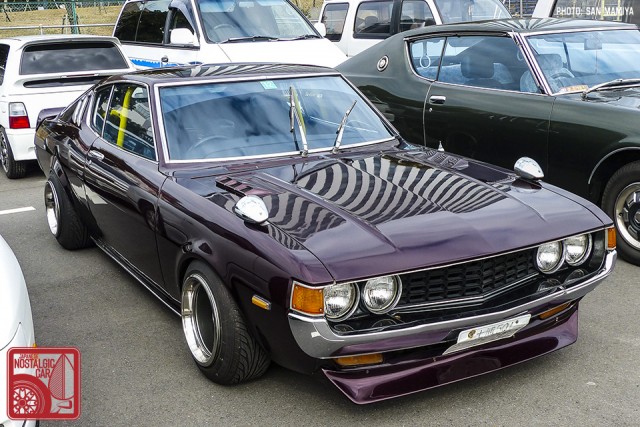
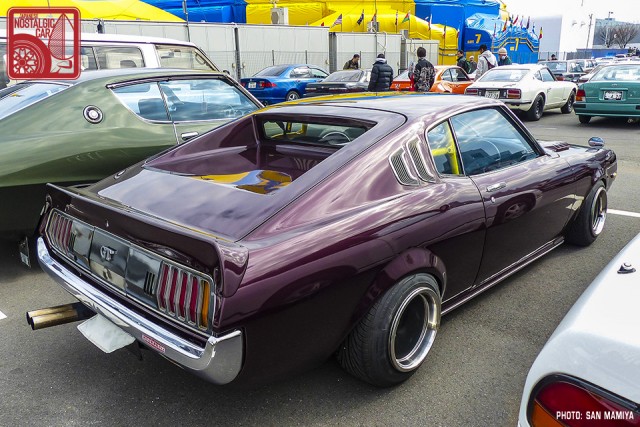
Another RA25 was decked in a bit more street racer flair with its Pantera hatch, enduro wipers, and shotgun exhaust. All in all, it was a great collection of Celicas exemplifying the style of the mid-70s to early 80s when emulation of circuit cars was at its peak.
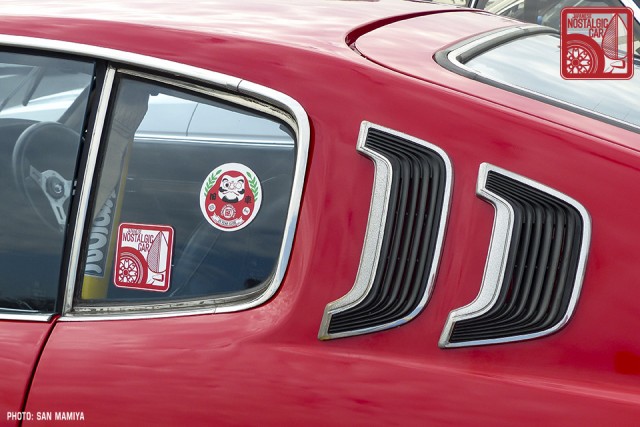
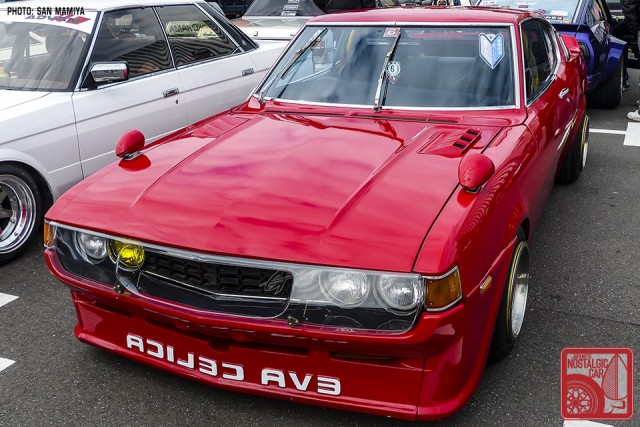
Our very favorite, however, was the famous EVA Celica, but only because we are totally biased and it was rocking our JNC inkan and 25 Year Club decals. Actually, the EVA kit is an ultra-rare, period-correct, aftermarket aero package made especially for the Celica. Back in the day it was comparable to a modern BenSopra R35 GT-R kit in terms of price and aspirational reach, making them uncommon then and nearly impossible to find now.
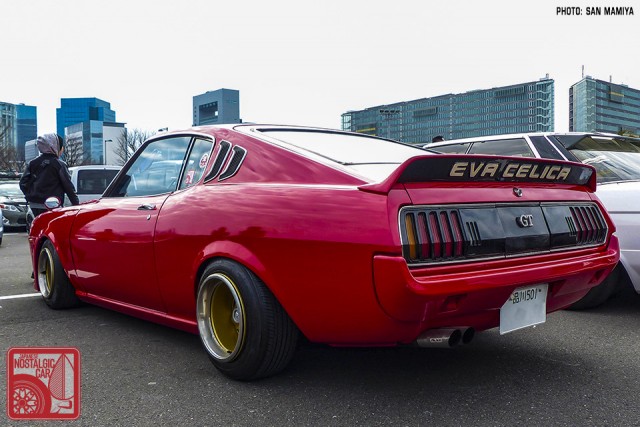
EVA made a kit for the S130 Fairlady Z as well, and both were immortalized in Crown scale model kits released in that era. This Celica is how EVA would have built their demo car — with cool widened steelies — before the age of widespread aluminum rims.
Prominently parked front and center were a squad of hakosuka Skylines, all finished in the early 1972 livery of Kunimitsu Takahashi‘s works GT-R. We count three oil coolers, four Wats, five headlight covers, eight red SSR MkIIs, and one million cool points.
And in case you were wondering, the swastika on the bucket hanging from one of them is not a support of Naziism; it’s a manji, a Buddhist symbol that Hitler perverted.

For a grittier take, here’s another Hako, done in brutal street fighter style with massive flares — in metalflake, of course — over equally massive SSR MkIs. Was the bunny sticker applied in period? If so, imagine pulling up to the Playboy Club in this thing. Instant respect. The “DATSUN” logo on the spoiler is a clever touch, too.
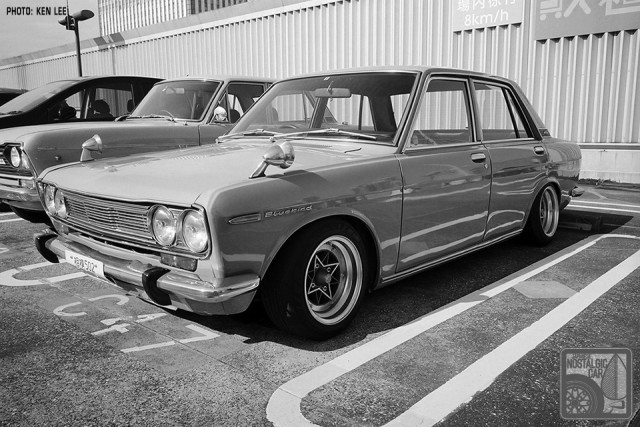
We realize that all the flares and exposed oil coolers might be jarring for the purists, so to nudge the dial back towards stock (not all the way there, just to “modded but reversible”), here’s a clean shakotan 510 sedan on SSR Star Sharks may help soothe the visual assault.
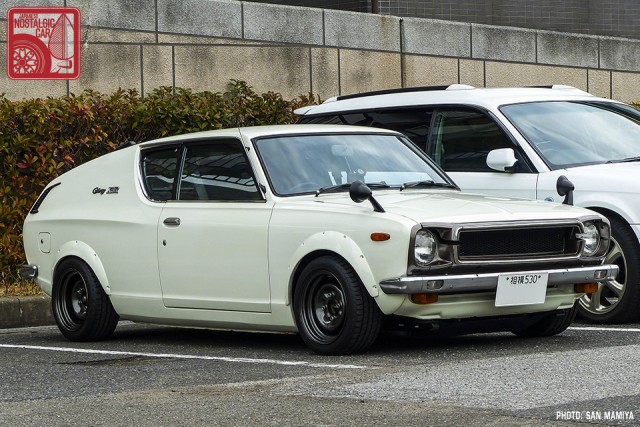
Here’s another fine example of an unmolested body with a few reversible changes to the unsprung weight. The Datsun F10 was considered one of the ugliest Japanese cars ever to touch US soil. It’s too bad we never received the top-spec X-1R, which had a rounded “semi-fastback” rear and yes, those are factory flares. Since it came with only the simplest of hubcaps when new, re-barreled steelies are the perfect wheel to stay true to its compact roots while complementing a tenacious racing stance.
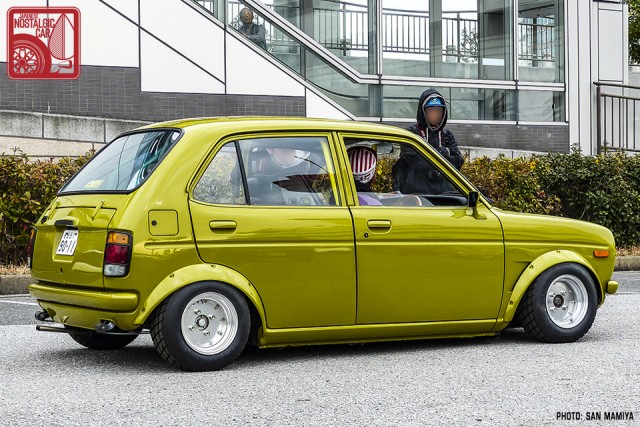
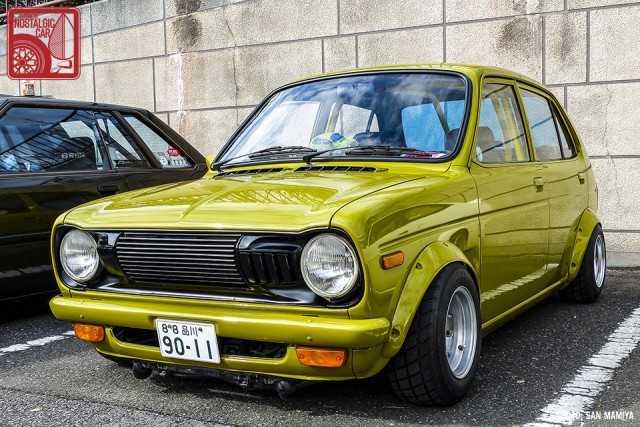
Wearing SSR MkIs small enough to be ashtrays was a flared olive green kei jidosha. It was the debut for High Top Fade impresario Park Baker’s Honda Life, sitting very cool and sporting clever touches like a blacked out B210 Sunny grille, kaido racer half-cage and what are perhaps the shortest fender ducts ever made.
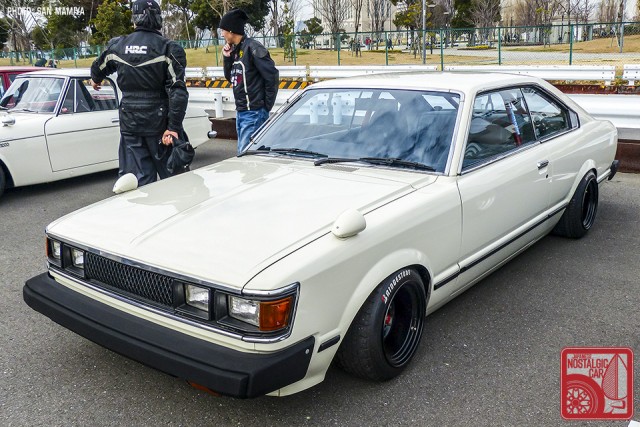
Rolling on what appear to be yet another set of re-barreled steelies was a Carina HT, sister car to the TA22 Celica but with more conservative styling. With a Napoleon mirrors mounted low and white-lettered Bridgestones giving off a hard-boiled vibe, it’s a ride Sonny Chiba would be proud to drive.
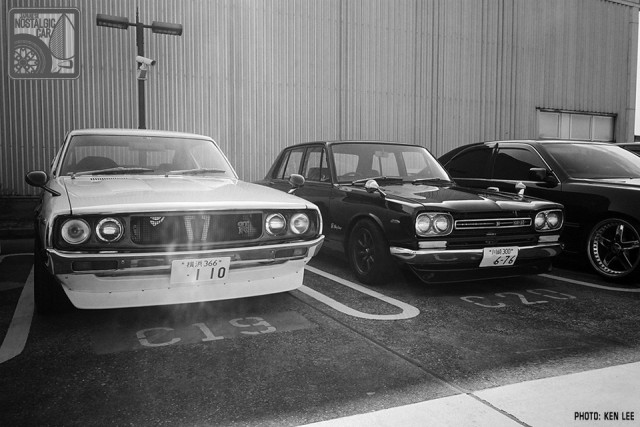
Lurking beside a modern VIP sled, hakosuka and kenmeri Skylines depict the evolution of Japanese badassery.
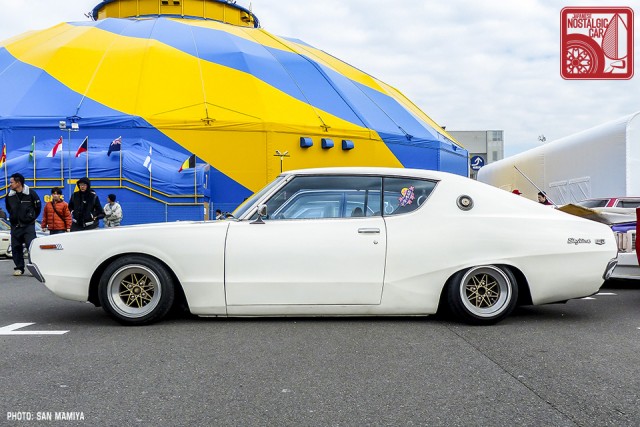
As it lay frame, a white kenmeri Skyline proved gorgeous with its in-tact surf line. Subtle modifications like Laurel side markers and door mirrors gave it an air of uniqueness without the need for extremes.
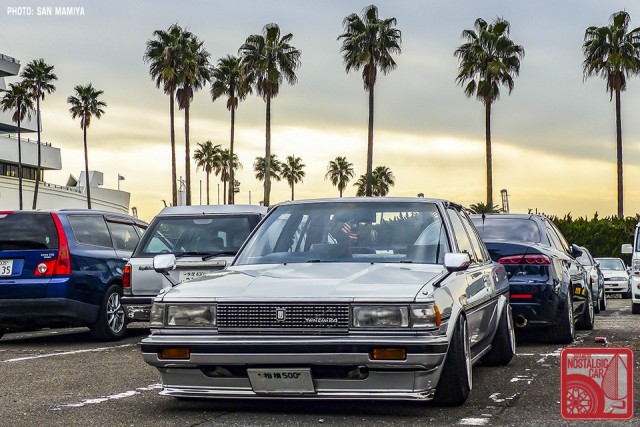
With the sun turning the sky to gold, a GX71 Mark II reminded us just how beautiful a boxy, mid-80s Toyota sedan could be. We wish more people would emulate this style — keep the body clean and just let the wheels and stance do the talking.
We tend to associate Japan with the wilder styles seen at the beginning of this installment, but no fuss simplicity is just as much a part of the car culture. Then again, the beauty of Japan’s deepness of automotive art is described right there by the pun in the name of the shopping center in the lead photo: diversity. To be continued…
There will be more New Year Meeting coverage coming up but in the meantime, in case you missed it, here’s Part 01 and Part 02, as well as coverage from the 2015, 2013, 2012, 2011 and 2010 New Year Meetings.
Ken Lee is a photographer in Tokyo and founder of Cars on Film. San Mamiya is an illustrator whose work you can find on Instagram and BigCartel.











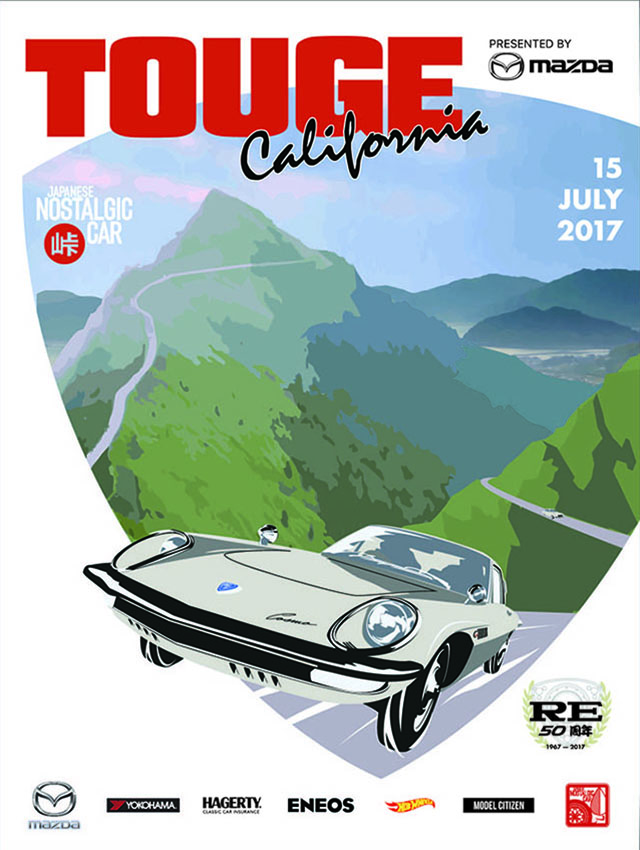

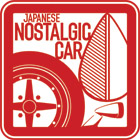
Completely agree with your final assessment many of the more stock looking cars are looking pretty good at this point, although it is fun to see all the custom work too… Will be interesting to see how the values hold on the custom cars verses the very stock original cars.
We welcome it all. It’s akin to the old American car scene. There’s hot rods, rat rods, lead sleds, lowriders, gassers, funny cars, resto-mods, etc. As well as bone stock. There’s the cars, but there’s the culture too.
pics missing from the 2010 coverage 🙁
Yeah, sorry about that. Like any old car, we have our issues.
That F10 hot damn!!!
My thoughts exactly!
I think that generation of Luce was the only car ever conceived from the start to have stacked square headlights; every American car that had them was a final facelift for an aging model on its’ way out.
The PA30 Gloria might be another.
The red and the purple Celica’s are amazing !!
Luce is super cool!
Having been to Diver City many many times, I’ve never even thought of it being a play on diversity, duh!
Also good to see a few other Cosmos in the opening shot, an uncommon platform, so it’s nice to see some out and about.
Yeah, there was a Katayama-livery one, too!
whoah, that eva celica tho… brilliant. anyone have Pictures of an Eva S130?
Sorry, we don’t… I don’t know if there’s one running around Japan anymore. We’ll snap one if we see it.
As Jim Simpson (and, Ben) pointed out, I think that in the end, when it all boils down and we’re all a few decades older and can look back at things, an original or at least original-appearing car will be worth more than one that has been modified to what someone else thinks is cool. You can see that every day in the auction wrap-ups and classic car sites all over the globe, original or restored-to-original-specs vehicles bring the highest prices.
But, in the meantime, during all of those years, we all have to live, too. Every hour of every day we have to live with our vehicles and we might as well enjoy life by modifying our cars the way that we want them to be right now. I’m a purist 99.999% of the time, but life is much too short to hold onto an original vehicle because you think that it may be more valuable someday if you don’t modify it the way that you want to. As CCR said (sang) back in 1972, “Somedaaaaaaayyy, never comessss”..
Agreed. I do wonder what will become of these Rocket Bunny/LB Walk supercars and even the less expensive Euro’s and Japanese cars that are cut up to have some faddish flares fitted. They’ll be very hard to sell soon enough as no one will want a hacked up Lambo/R8/M3/NSX etc.
Completely agree with that Scotty, as a guy who has modified many more than a few vehicles over the years, I certainly would never tell someone not to get the max amount of enjoyment out of their car… but they might in the case of some of those earlier cars want to hang on to the original bits…
That’s why we advocate reversible modifications — wheels, suspension, other bolt-on parts. However, when a car was modified in period, meaning at the time it was new or not-so-old, then that’s a brilliant snapshot in time that should be preserved. Many of those are what you see in this article.
I’m not so worried about a Lambo or NSX. In many ways, an old Corolla is in much more danger of going extinct. There were way more, but very few people thought to preserve them.
It’s all about the flares and exposed oil coolers
Are there any more pictures or more info on the green LIfe? So cool..
User name on Instagram is @prkbkr